Corticosteroid injections (also known as cortisone or steroid injections) are designed to give short to medium term pain relief for many musculoskeletal conditions. The pain relief from a corticosteroid injection provides a window of opportunity to engage in physiotherapy and address the underlying cause of your pain.
They are often used in the treatment of conditions such as frozen shoulder, De Quervain’s tenosynovitis, trigger finger and carpal tunnel syndrome. They are also a very effective method for providing temporary pain relief in chronic conditions such as hip and knee osteoarthritis.
Corticosteroid injections can also be used to provide temporary pain relief to allow you to participate in life’s important events, such as a wedding or a walking or skiing holiday.
Dealing with chronic pain can be a challenging and debilitating experience. It can affect you in many ways, reducing your ability to complete your daily activities, limiting your mobility, and generally having a negative impact on your quality of life. However, the decision to have a corticosteroid injection to manage your pain should not be taken lightly.
In this article, we explain what a corticosteroid injection is and how it works, as well as the potential benefits and risks. We will also discuss when a corticosteroid injection might be appropriate.
The aim of this article is to help you make an informed decision about whether a corticosteroid injection is right for you.
What are corticosteroids?
Corticosteroid medication is a synthetic replica of a naturally produced hormone called cortisol. Cortisol is produced by the adrenal glands (located on top of the kidneys).
Synthetic corticosteroids mimic the effects of naturally occurring corticosteroids and have been used, for many decades, for their powerful anti-inflammatory properties. Corticosteroids can be used to treat a wide range of painful, inflammatory conditions such as osteoarthritis, rheumatoid arthritis, tendinitis and bursitis. These injections involve placing a dose of corticosteroid medication into a specific area of the body with the aim of reducing inflammation and alleviating pain.
Corticosteroids have two main actions:
- Corticosteroids reduce inflammation.
- They enter cells where they bind to specific receptors on the surface of the nucleus. This binding process influences the production of proteins. This protein adaptation reduces the production of inflammatory cells such as cytokines.
- They stabilise the outer surface of the cell (known as the cell membrane), reducing its permeability. This reduces the release of inflammatory chemicals into the body.
- They reduce the permeability of blood vessels. This reduces the leakage of fluid into the surrounding soft tissues, reducing swelling.
- Corticosteroids suppress the immune system.
- They reduce the actions of many immune cells including lymphocytes and macrophages (lymphocytes and macrophages are important immune cells which produce antibodies as part of the inflammatory process). Therefore, corticosteroids are used to treat autoimmune conditions including rheumatoid arthritis, lupus, type I diabetes and multiple sclerosis.
- Furthermore, corticosteroids are used to suppress the immune system after organ transplantation, allowing the body to accept the new organ.
What are the benefits of corticosteroid injections?
Corticosteroid injections have many benefits:
- They reduce inflammation, swelling, and pain. This gives you a window of opportunity to deal with the underlying causes of your pain, which often requires a short course of physiotherapy and a home exercise program.
- . They can serve as a diagnostic tool. If an injection provides effective pain relief then the source of the pain has been found! This allows healthcare professionals to develop a more focused treatment plan for you.
- They are minimally-invasive procedures that can be performed in an outpatient setting making them very convenient.
When is it time to consider a corticosteroid injection?
If you have tried all the conservative treatment options listed below but you still have pain then an injection may be of benefit. Corticosteroid injections should be considered if you are suffering from one or more of the below complaints:
- Pain that has not responded to physiotherapy treatment.
- Pain that has not responded to a progressive rehabilitation program (including strengthening and stretching).
- Pain that keeps you up at night or wakes you up.
- Pain that is affecting your ability to work.
- Pain that is limiting your ability to complete tasks of daily living such as washing and dressing.
- Pain that is restricting you from leisure and sporting activities.
- Pain that is having a negative affect on your mental health.
Corticosteroid injections can be used in many different scenarios including:
- Inflammatory conditions.
Corticosteroid injections are regularly used to treat conditions where inflammation is responsible for pain. Inflammatory conditions, including arthritis, bursitis, and tendinitis, are often treated with corticosteroid injections. Inflammation causes pain, stiffness, swelling and a reduced ability to complete activities of daily living. These injections can be very helpful in reducing symptoms, allowing you to move better and giving you an opportunity to deal with the underlying causes.
- Failed conservative treatment.
If you have tried conservative treatments such as rest, physiotherapy, rehabilitation exercises and oral painkillers but have not had a satisfactory result then a corticosteroid injection may be considered as a next step. At Complete we highly recommend you try all conservative treatment options before undertaking a steroid injection.
- Acute Episodes.
Corticosteroid injections can be very effective at dealing with acute flare-ups of pain and are especially effective in treating conditions such as gout. They can be effective at alleviating painful flare-ups in many musculoskeletal conditions. However, it is highly recommended that an injection be followed up with a course of physiotherapy to address the causes of the flare-up.
- Diagnostic accuracy.
Steroid injections are regularly used to confirm or refute a diagnosis. If a steroid injection relieves pain then the source of the pain has been successfully identified. Alternatively, if the steroid injection proves to be ineffective then further investigations are often required.
What other treatment options should I try before resorting to a corticosteroid injection?
Generally speaking, corticosteroid injections should not be used as a first line treatment (the exception to this rule is frozen shoulder, when a corticosteroid injection may actually be most beneficial in the earlier stages).
The first port of call with muscle, tendon, joint and nerve pain should include a combination of the following treatment options:
- A comprehensive physiotherapy assessment.
- If appropriate, a diagnostic ultrasound scan (at Complete, all our clinical specialists are highly experienced advanced practitioner physiotherapists and musculoskeletal sonographers and will be able to quickly and accurately diagnose your problem using a combination of physical assessment tests and ultrasound scanning).

- A period of relative rest and use of any pain relieving adjuncts, including ice, heat, and oral/topical painkillers (if not contraindicated).
- A progressive rehabilitation exercise program, tailored to your injury.
- Manual treatments such as soft tissue massage, joint manipulation or acupuncture.
- Shockwave (shockwave machines produce a series of powerful acoustic pressure waves which stimulate healing in tendons and bone).
It is important to note that a corticosteroid injection is designed to reduce pain and inflammation. It is not a silver bullet and should be used as part of a bigger recovery program. To gain maximum benefits after an injection, it is vitally important that you partake in an intensive post injection rehabilitation phase with an experienced Physiotherapist.
What conditions can corticosteroid injections treat?
Corticosteroid injections are used to treat pain and inflammation in a wide variety of conditions, including:
- Osteoarthritis
- Rheumatoid arthritis
- Gout
- Bursitis, such as subacromial bursitis of the shoulder or infrapatellar bursitis of the knee. (Bursae are fluid filled washers found between tendons and bones or tendons and other tendons).
- Tenosynovitis. This is when the sheath, which surrounds some tendons, becomes irritated. For example, Quervain’s tenosynovitis of the thumb or long head of biceps tenosynovitis of the shoulder.
- Inflamed nerve conditions such as carpal tunnel syndrome at the wrist.
Are there any risks associated with a steroid injection?
While steroid injections are generally safe and can be very effective at reducing pain, it is important to understand that there are a few risks and side effects associated with steroid injections. Side effects are uncommon, but can include:
- Infection
- Nerve damage
- Allergic reactions
- Changes in blood sugar levels
- Temporary increases in pain
For a list of all potential side effects please read our comprehensive patient information leaflet here.
Why Should You Choose Complete Injections?
At Complete Injections we offer a highly specialised ultrasound guided injection service, providing the highest quality of care at affordable prices.
With NHS waiting lists becoming dishearteningly long, Complete Injections is able to offer fast and easy access to pain relieving injections for a wide range of musculoskeletal conditions, with minimal or no wait times.
We offer a comprehensive range of treatments for all upper limb and lower limb joints and a wide range of commonly occurring conditions.
Complete Injections is a pioneering clinic with a team of highly experienced clinicians who each have over 10 years experience, performing thousands of ultrasound guided injections each year.
All of our expert clinicians are dual trained as musculoskeletal sonographers as well as experts in advanced practice physiotherapy. They have all worked as clinical leads in some of the most prestigious NHS and private hospitals around the country.
They are able to uniquely combine expert musculoskeletal assessment skills along with diagnostic ultrasound assessment to confirm the diagnosis of your condition and perform ultrasound guided injections where appropriate. Our ‘one-stop shop’ model of care allows us to assess and scan patients and proceed to injection within the same appointment.
Complete Injections have conveniently situated clinics, in central London and other locations across the country.
If you are unsure whether a corticosteroid injection is appropriate for you, or if you would like to book an appointment with one of our clinical specialists please contact Complete on 020 7482 3875 or email injections@complete-physio.co.uk.


